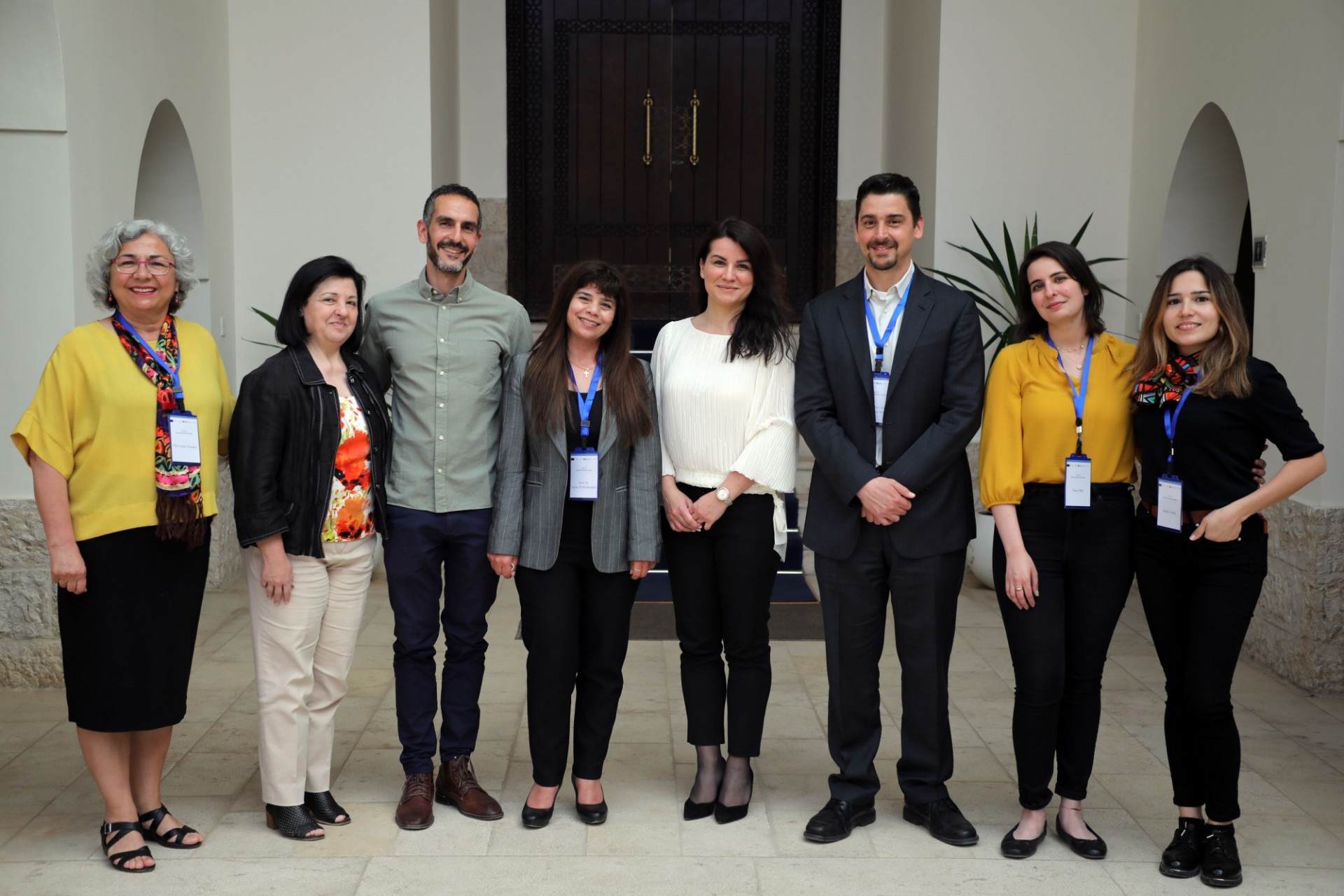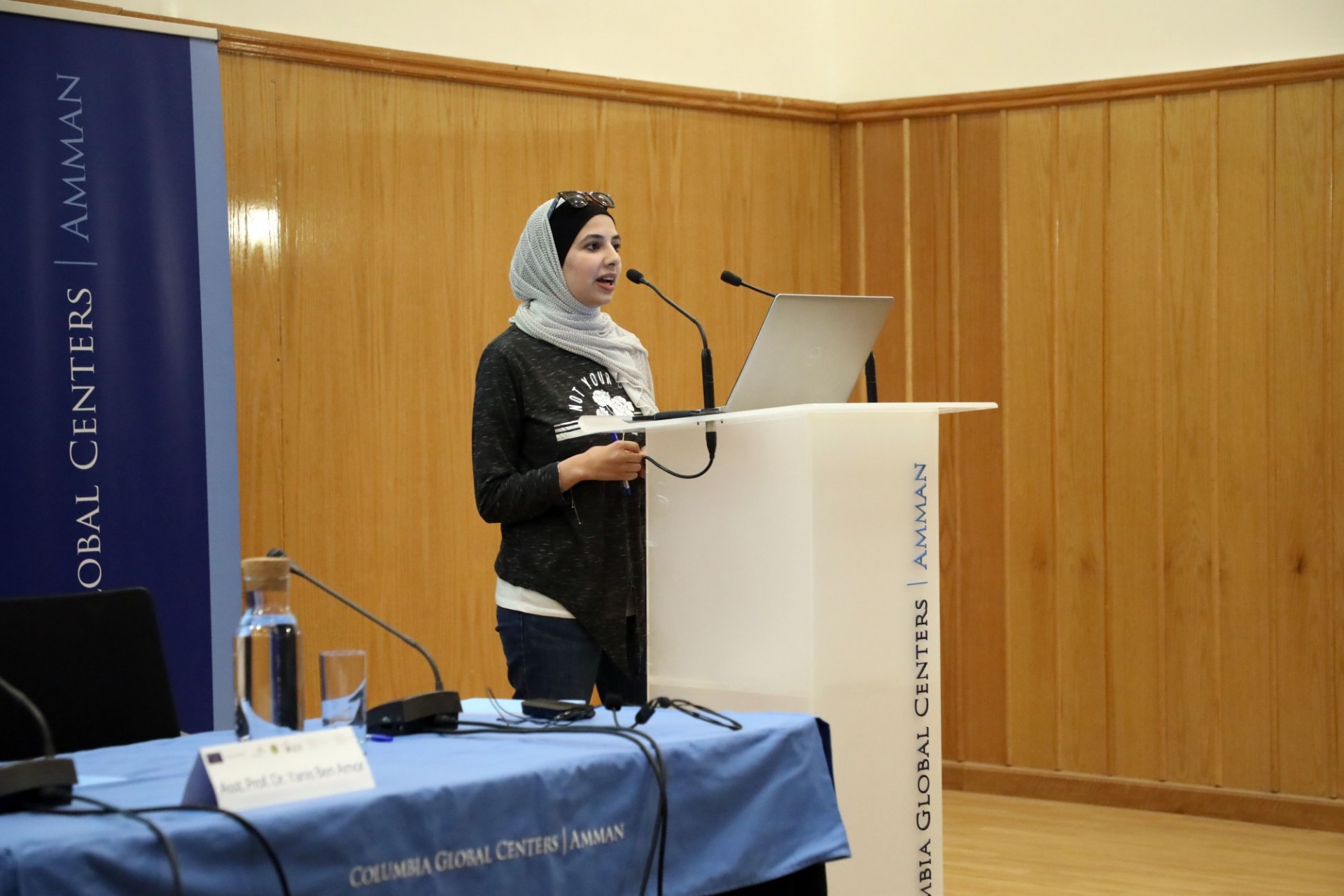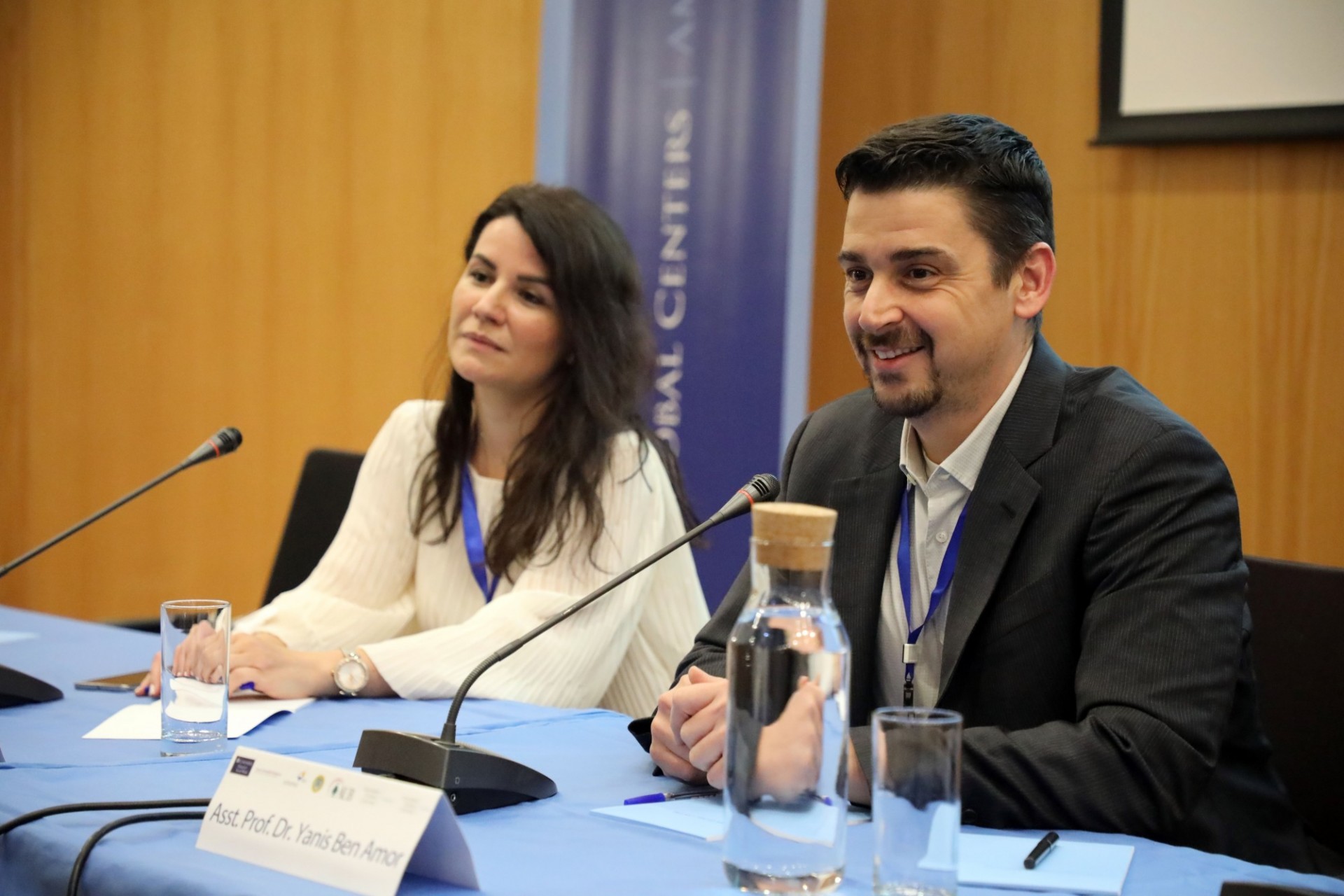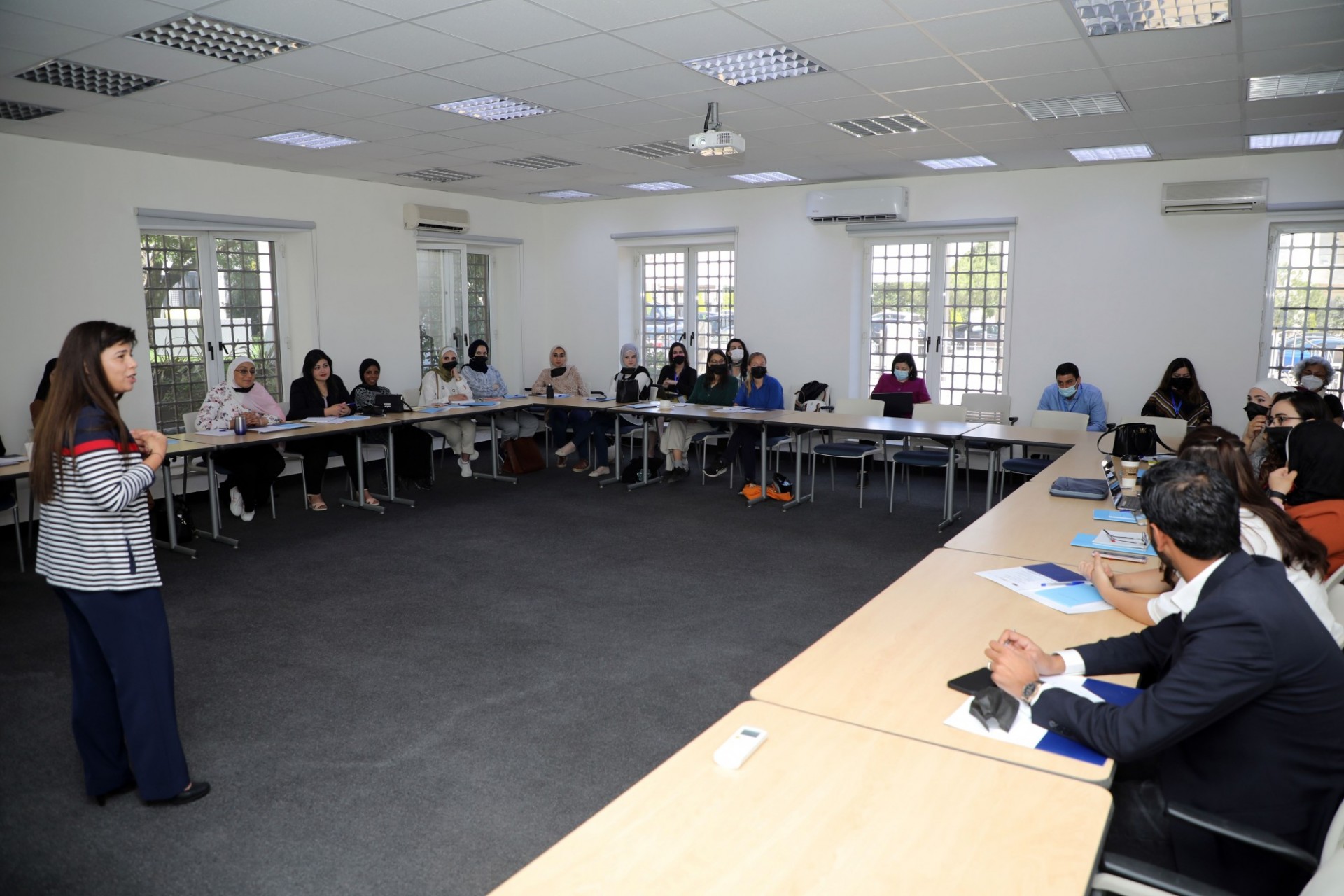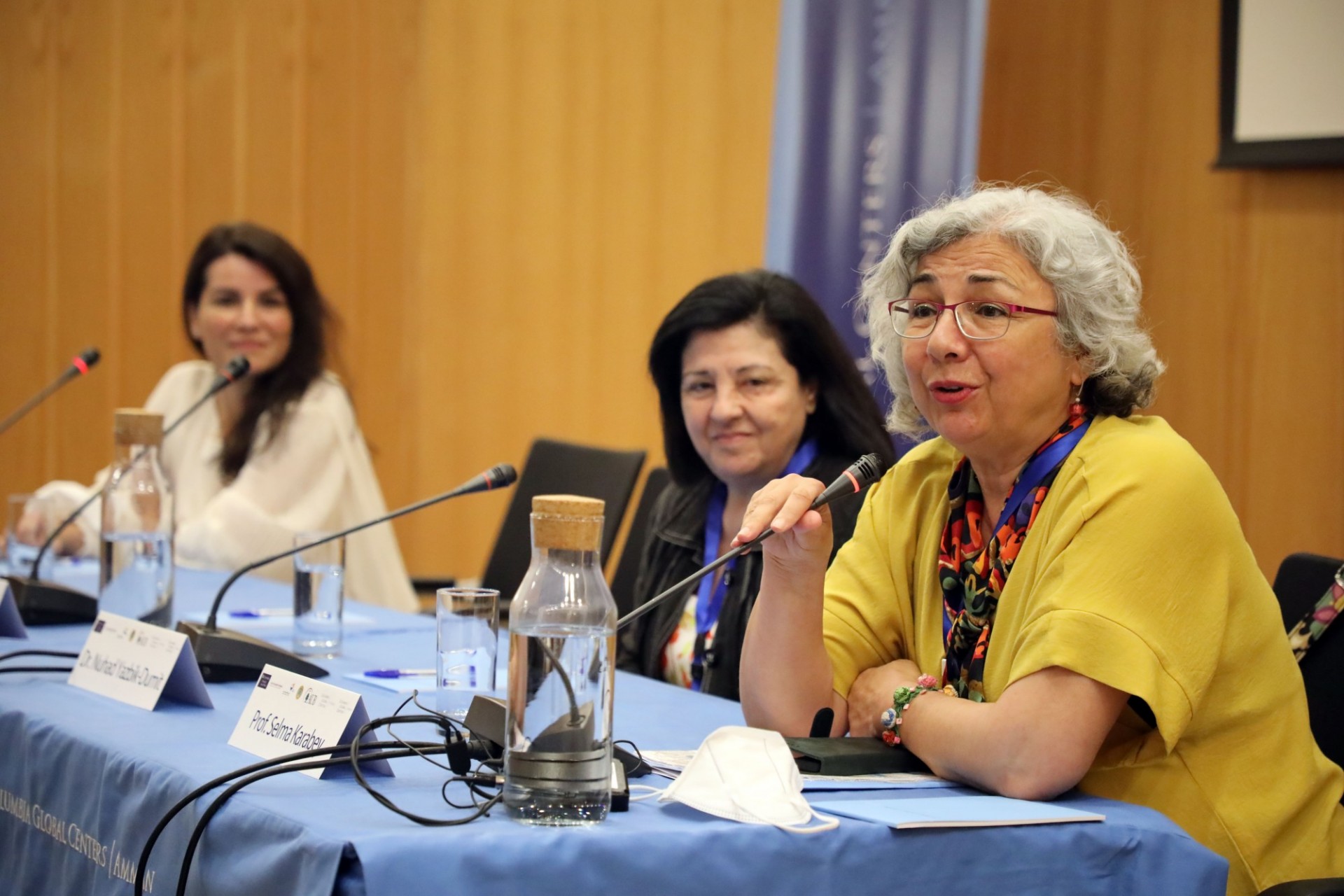As part of the REfugees Act and Communicate for Health (REACH) Project, the Amman Center held a virtual high-level expert stakeholders regional meeting on May 18, 2022, led by Yanis Ben Amor, Assistant Professor of Global Health and Microbiological Sciences at the Columbia University Medical Center and Executive Director of the Center for Sustainable Development at the Earth Institute.
The event included a panel of experts and professionals working on migrants’ health, and young people who discussed the findings of a regional mixed-methods field study in Jordan, Lebanon, and Turkey that focused on the use of digital health technologies to increase local and refugee youth's access to health information and services. This was followed by a panel on the REACH4Health App, and a photography exhibition. Through the panel discussion, participants raised awareness on using digital health technologies for health promotion among relevant stakeholders. The international project team worked to compare findings from the three host countries, taking into consideration social determinants of health and existing health services for forced migrants. Following the dissemination event, a training workshop was held to increase the research capacity of postgraduate public health students and early career public health researchers on qualitative and mixed-methods research with migrants and refugees.
REACH is a regional initiative of Columbia University, which aims to bridge the gap in health literacy and health care access among refugee youth in Turkey, Lebanon, and Jordan, which are the countries affected the most by the Syrian conflict. Supported by the TaiwanICDF, Blue Chip Foundation, and Columbia University, the REACH Project uses a community-based participatory action research (CBPAR) approach and aims to assess the impact of information and communication technologies on accessing health information and services among refugee youth. With a strong adult-youth partnership, the project includes stakeholder meetings, mixed-methods studies with refugee and local youth, qualitative interviews with health service providers and policy makers, in addition to communication and dissemination activities such as organization of exhibitions, panels, and production of policy briefs and scientific publications. REACH has been working with refugee and local youth, software developers, academia, health professionals, and NGOs to develop a trilingual mHealth application to promote young refugees’ and vulnerable youth’s health via digital technologies.
The project kicked-off with a stakeholder meeting in Amman in June 2021, which brought together researchers from Columbia University with counterparts from universities in Jordan, Lebanon and Turkey. This meeting was the first step in sharing knowledge and building an international research network to collaboratively work on the use of digital technologies to prevent diseases and to promote health by improving young people’s health literacy and access to health care in forced migration settings. Stakeholders discussed current problems and solutions regarding health literacy and health care access issues among refugee and local youth in Jordan. The project team then conducted a qualitative study with refugee and local youth, refugee health workers, and health policy makers in Jordan to assess the current trends and gender-specific needs for digital health tools to access reliable health information and available health services in Jordan. The study was conducted in partnership with the German Jordanian University, and the findings were shared at the regional stakeholder meeting in May 2022.
